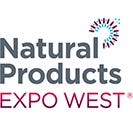4,744 (comments) and counting

4,744. That is how many comments have been submitted to the FDA as of March 1 in response to its call for comments on the use of the word “natural” on food (including dietary supplement) product labels.
By way of brief background, unlike the claims “healthy” and “organic,” currently there is no regulation on what FDA regulated food and dietary supplement products can be called “natural.” Without a regulatory definition, food and supplement companies are forced to decide on their own whether they can claim their products are “natural,” and those that decide to do so have found themselves the subject of lawsuits by consumers who disagree with the company’s decision.

Expo West appearance:
What is "Natural": Dissecting Public Commentary to the FDA
Wednesday, March 9
10 - 11 a.m.
Marriott, Grand Ballroom G/H
After years refusing to attempt to define the term, on November 12, 2015, FDA announced that it was soliciting input from the public on the question of whether it should define the term “natural” and, if so, how? The comment period was extended until May 10, 2016, so there is still time to make your voice heard on this important issue. FDA is specifically interested in the following:
Should we define, through rulemaking, the term “natural”? Why or why not?
Should we prohibit the term “natural” in food labeling? Why or why not?
If we define the term “natural,” what types of food should be allowed to bear the term “natural”?
Should only raw agricultural commodities be able to bear the term?
Should only single ingredient foods, e.g., bottled water or bagged spinach, be able to bear the term?
If multi-ingredient foods should be able to bear the term, what type(s) of ingredients would disqualify the food from bearing the term?
Data or other information to suggest that consumers associate, confuse, or compare the term “natural” with “organic.”
Data or other information to suggest that consumers associate, confuse, or compare the term “natural” with “healthy.”
Should manufacturing processes be considered in determining when a food can bear the term “natural”?
Should certain production practices used in agriculture, for example, genetic engineering, mutagenesis, hybridization, the use of pesticides, or animal husbandry practices, be a factor in defining “natural”?
Should the term “natural” only apply to “unprocessed” foods? If so, how should “unprocessed” and “processed” be defined for purposes of bearing the claim?
What can be done to ensure that consumers have a consistent and accurate understanding of the term “natural” in food labeling to ensure that it is not misleading?
What are the public health benefits, if any, of defining the term “natural” in food labeling?
Should “natural” have some nutritional benefit associated with it? If so, what should be the benefit?
How might we determine whether foods labeled “natural” comply with any criteria for bearing the claim?
Comments can be submitted on-line HERE. Tell FDA what you think!
About the Author
You May Also Like




.jpg?width=700&auto=webp&quality=80&disable=upscale)